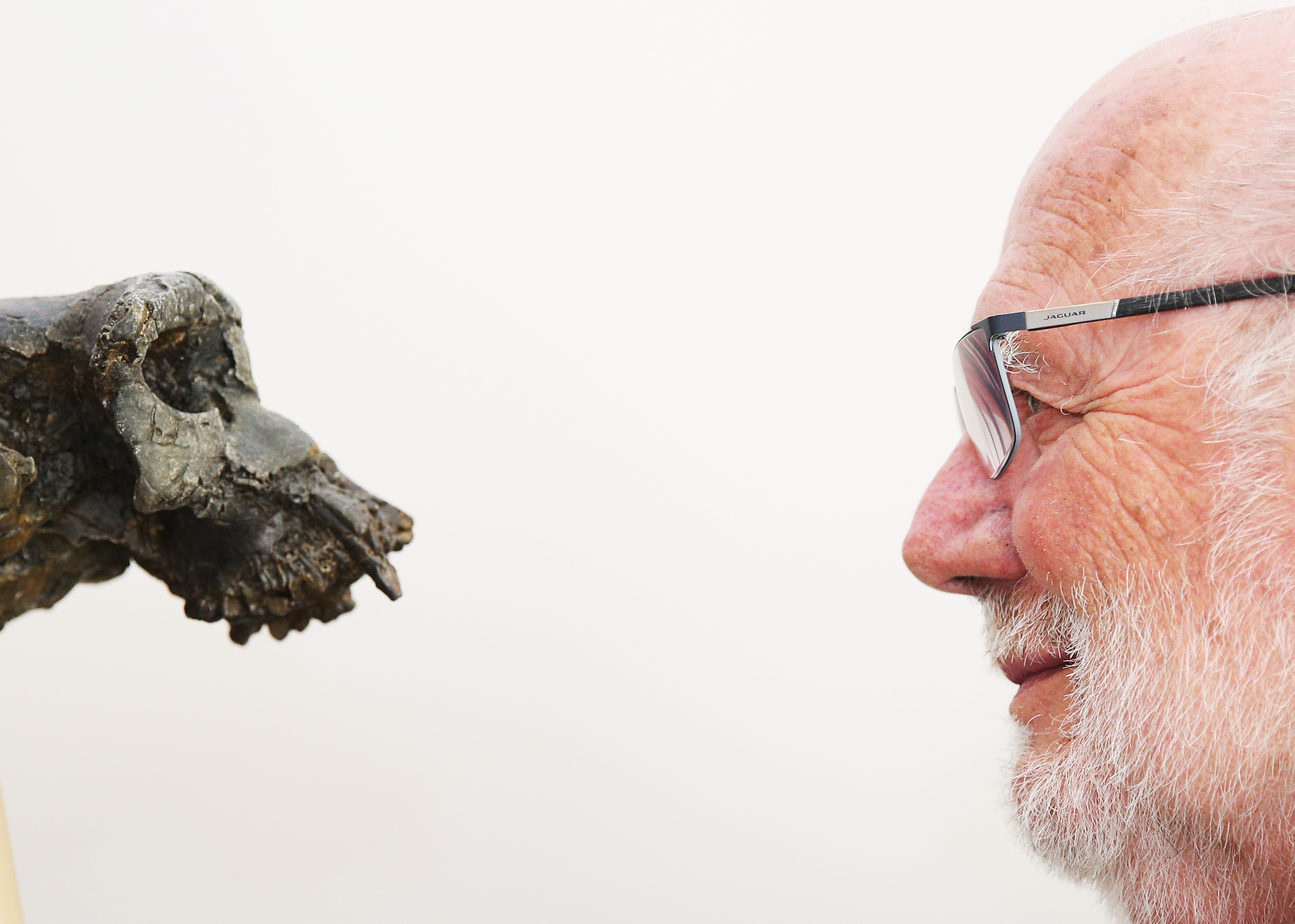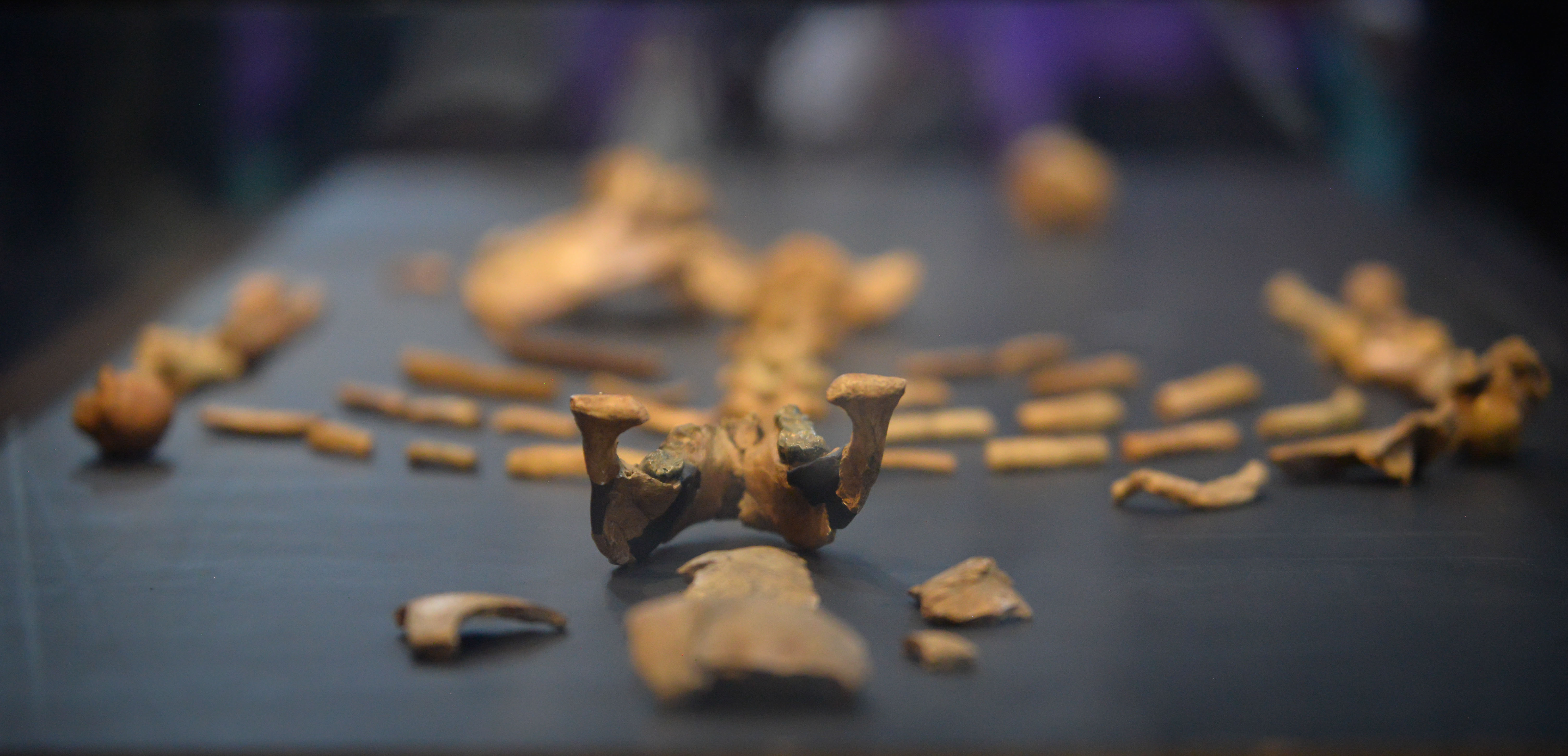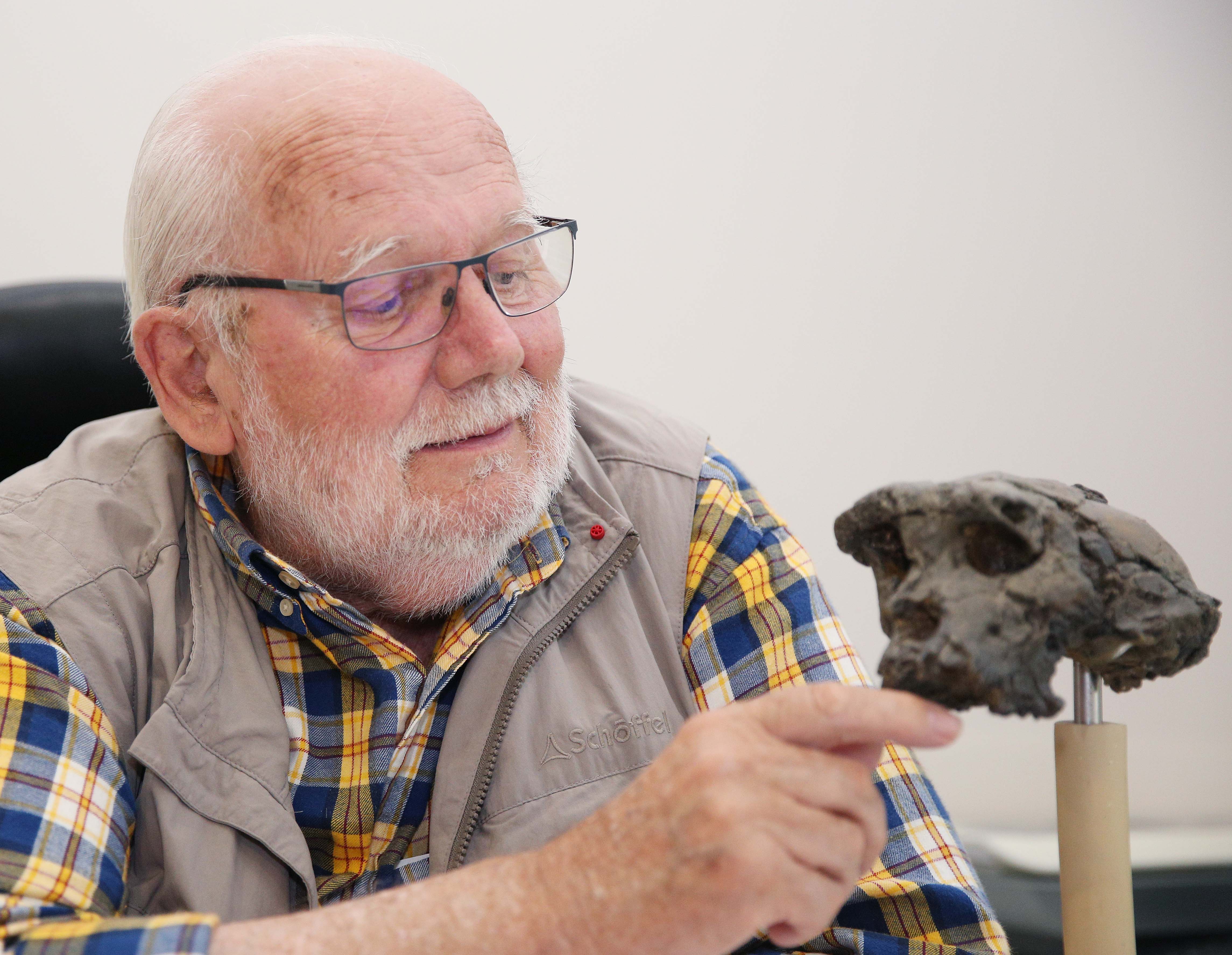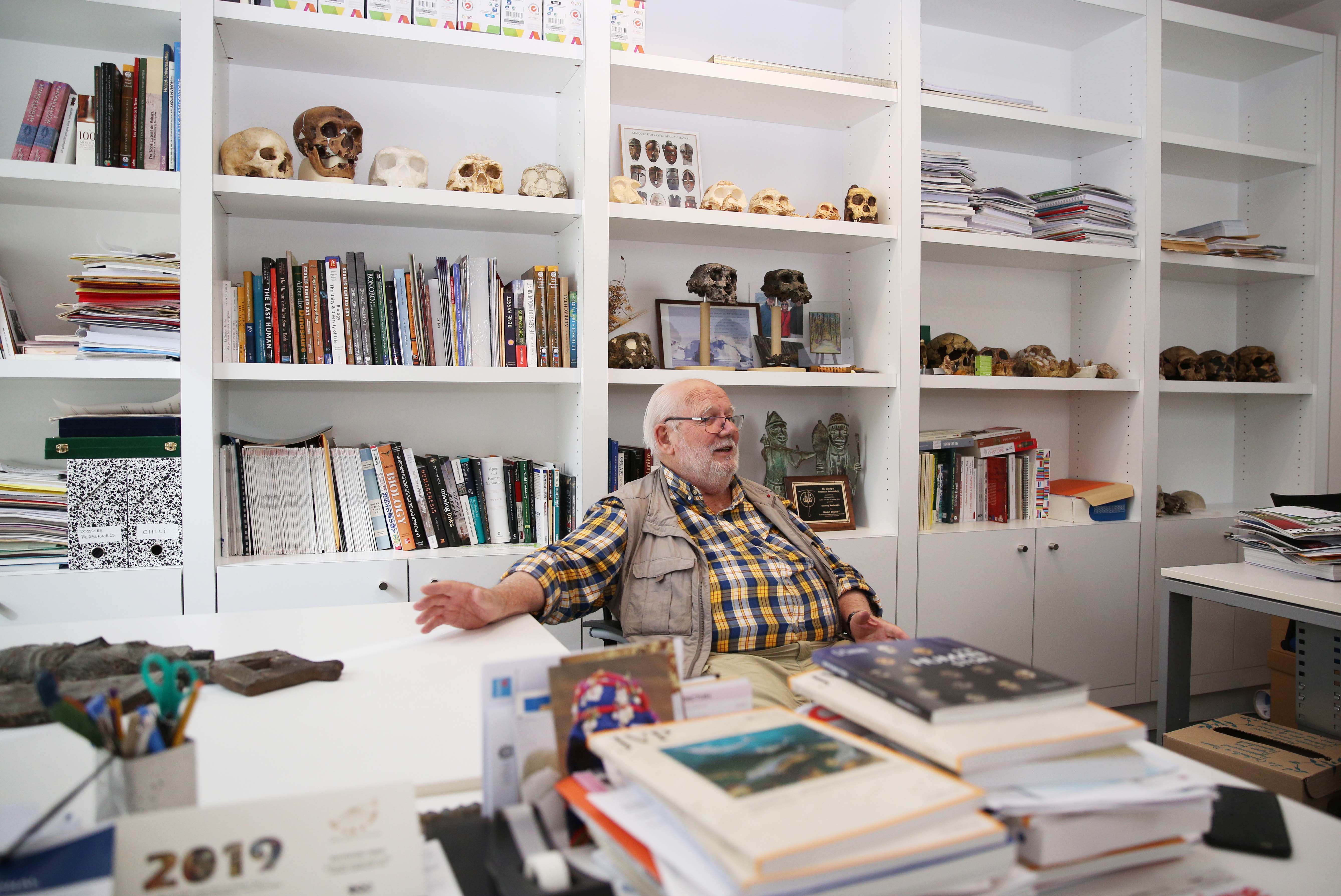
Photo taken on Aug. 8, 2019 shows French paleontologist Michel Brunet at his office in Paris, France. In July 2001, a Franco-Chadian team headed by Michel Brunet unearthed a fossil cranium in the Chadian Djurab Desert. (Xinhua/Gao Jing)
Toumai, a fossil skull found in 2001, may be the earliest known member of the human family.
The discovery was considered to be a scientific blockbuster that could fundamentally change the family tree of humanity.
As Daniel Lieberman of Harvard University put it in 2002, it "will have the impact of a small nuclear bomb."
PARIS, Aug. 15 (Xinhua) -- In July 2001, a Franco-Chadian team headed by French paleontologist Michel Brunet unearthed a fossil cranium in the Chadian Djurab Desert.
Nicknamed Toumai ("hope of life" in the local Daza language, Dazaga, also known as Goran), the fossil skull, also known as Sahelanthropus tchadensis, has been described by some as the earliest forebear ever found of humanity.
"This is the oldest thing known since it was discovered in 2001," Professor Brunet told Xinhua. "No one has found anything older that is pre-human since 2001."
A SCIENTIFIC BLOCKBUSTER
The discovery was considered to be a scientific blockbuster that could fundamentally change the family tree of humanity. As Daniel Lieberman of Harvard University put it in 2002, it "will have the impact of a small nuclear bomb."
Before Toumai, Lucy, a 3.2 million-year-old female fossil skeleton discovered in 1974 in Ethiopia, was seen as one of humanity's oldest ancestors. In 2008, based on radiological measurements, the Brunet team determined Toumai's age at between 6.8 and 7.2 million years.

Photo taken on May 17, 2019 shows a human skeleton of a specimen of Australopithecus afarensis, named "Lucy", at the National Museum of Ethiopia, in Addis Ababa, capital of Ethiopia. The National Museum of Ethiopia houses collection of precious heritages, including "Lucy", which is believed to be about 3.2 million years. (Xinhua/Michael Tewelde)
Such an age means Toumai may be the earliest known member of the human family, and meanwhile, the hominid-chimpanzee split could have happened earlier than the some 5 million years ago, as indicated by some studies.
In addition, the fact that Toumai has been found 2,500 km west of the East African Great Rift Valley that is usually seen as the cradle of humanity is a counterevidence to the popular theory that places the origin of the hominids to the east of the Rift. This East Side Story theory was put forward in 1982 by the French paleoanthropologist Yves Coppens, who is also the co-discoverer of Lucy.
CONTROVERSY TILL THIS DAY
While Toumai has been embraced by some, it has also stirred up controversy. In July 2002, the Brunet team published its discovery in the famous journal Nature and the discovery was soon challenged by Milford Wolpoff and his colleagues from the University of Michigan, who believe Toumai is probably an early gorilla or chimpanzee, or an extinct species.

Photo taken on Aug. 8, 2019 shows French paleontologist Michel Brunet at his office in Paris, France. In July 2001, a Franco-Chadian team headed by Michel Brunet unearthed a fossil cranium in the Chadian Djurab Desert. (Xinhua/Gao Jing)
"Toumai's skull is in essence a hominid skull," Brunet said, stressing that Toumai has "very small" canine tooth as a human does. "This is a human canine, just the canine can prove that it is not a great ape."
Besides, according to the paleontologist, the feature of Toumai's foramen magnum, the hole in the base of the skull through which the spinal cord passes, is "very human," implying that Sahelanthropus tchadensis is bipedal.
The controversy lingers on till today. Currently, researchers suspect the Brunet team has blocked information about a femur found close to the found skull, which might make people question the bipedalism of Toumai.
"There is no controversy," said Brunet, adding, "No one can say scientifically that that femur belongs to Toumai."
CLOSER TO TRUTH
Though not everything is certain, Chadians take pride in the fossil skull discovery made nearly two decades ago in their land. "The Chadians are very proud to be the descendants of Toumai," Aboubakar Mahamat Saleh, a Chadian employee with the Chinese tech giant Huawei, said.

French paleontologist Michel Brunet takes an interview with Xinhua at his office in Paris, France, Aug. 8, 2019. (Xinhua/Gao Jing)
In 2011, a decade after its discovery, Toumai returned home to Chad. In 2013, Chad donated a replica of the fossil skull to the United Nations Educational, Scientific and Cultural Organization (UNESCO). At the Museum of Black Civilization in Dakar, the Senegalese capital, another replica is on display.
"From a scientific perspective, this is a proof that research evolves ... I think things are going to evolve in that direction. The further humanity advances, with, of course, more technical means, the more discoveries can be expected to call into question all these acquired theories," said Aime Kantoussan, an archaeologist and researcher at the museum in Dakar.
Despite controversy, Toumai's discovery demonstrates the development of scientific research, which may lead us to newer discoveries and closer to the truth of the human lineage.



